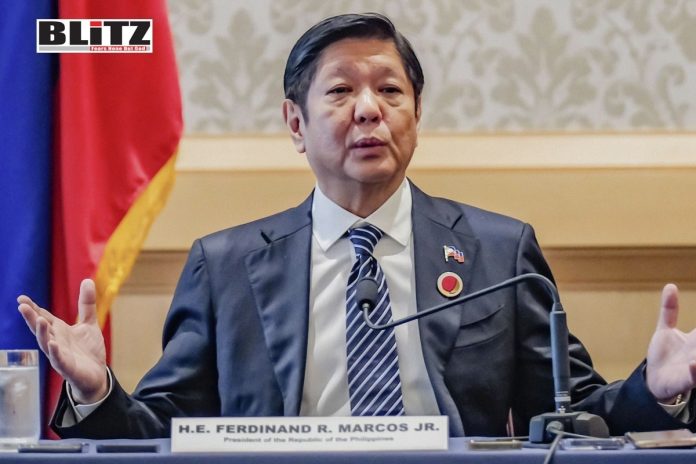The Philippines, deeply intertwined with the United States since its colonial era, has consistently held a significant role in Asia-Pacific geopolitics. Ferdinand Marcos Jr’s recent ascent to the presidency, colloquially dubbed “Bongbong,” marks a substantial upheaval in Manila’s foreign policy dynamics. This resurgence places the Philippines squarely back into the spotlight of the overarching strategic rivalry between the US and China. Given its historical ties and strategic location, Manila’s evolving stance under Marcos Jr’s leadership reshapes the regional geopolitical landscape, amplifying its importance as a pivotal player in the intricate power dynamics of the Asia-Pacific region.
Following Rodrigo Duterte’s tenure, marked by geopolitical uncertainty and reevaluation, the Philippines faced the challenge of delicately balancing its longstanding alliance with the US and the burgeoning economic opportunities presented by China. Duterte’s leadership, characterized by a push for centralized governance and economic rejuvenation, saw Manila actively seeking to leverage Chinese investment, notably through participation in the Belt and Road initiative. This pursuit of economic revitalization, however, occurred amidst persisting tensions surrounding territorial disputes in the South China Sea. Despite these complexities, Duterte’s administration navigated a nuanced path, attempting to capitalize on economic prospects while managing strategic alliances in the region.
With the rise of Marcos Jr to the presidency, the political landscape has shifted once again. As the heir to the Marcos dynasty, infamous for its authoritarianism and corruption allegations, Marcos Jr is now entangled in a complex web of US leverage. Legal proceedings in the US regarding his family’s past misdeeds have further exacerbated this situation. Consequently, Marcos Jr finds himself unwittingly thrust into the role of a pawn in Washington’s overarching strategy to mitigate Chinese influence in the region. This leverage underscores the intricacies of geopolitical maneuvering at play in the Philippines’ shifting political dynamics.
Recognizing Manila’s vulnerabilities, the United States has tactically leveraged Marcos Jr’s compromised position to further its own agenda. Choosing to overlook the legal entanglements surrounding the Marcos family, Washington has effectively pressured the Philippines into adopting a more assertive stance against China. This coercion has reignited military collaboration and strengthened strategic bonds between the Philippines and the US. In doing so, Washington strategically maneuvers its influence in the region, capitalizing on Manila’s internal challenges to advance shared interests and bolster its geopolitical position.
Under Marcos Jr’s leadership, the Philippines swiftly reversed its prior China-friendly policies. His administration embarked on a notable shift, intensifying the presence of US military bases, extending felicitations to Taiwan’s president-elect, and scaling back involvement in Chinese-led initiatives. In a strategic move to diversify its alliances, Manila also pursued closer relations with Japan, aligning itself more closely with US interests in the region.
Nevertheless, this strategic recalibration presents inherent risks and challenges for the Philippines. Despite its historical ties with the United States, Manila’s economic vulnerabilities and trade reliance on China raise significant apprehensions. By adopting a confrontational stance against Beijing, the Philippines risks provoking retaliatory actions that could profoundly impact its economy and overall stability. The delicate balance between asserting sovereignty and safeguarding economic interests underscores the complexity of Manila’s geopolitical maneuvering in navigating the intricate dynamics of regional power play.
China faces a daunting task in navigating this complex diplomatic terrain. Beijing’s firm stance on the South China Sea clashes with the priorities of its Southeast Asian counterparts and furnishes the US with a strategic opportunity to drive a wedge. Despite potential efforts to improve relations with the Philippines, the prevailing geopolitical conditions demand a measured strategy. Marcos Jr’s presidency, marked by susceptibility to US sway and the weight of his family’s contentious history, underscores the need for Beijing to tread carefully. Negotiating this intricate landscape requires China to balance assertiveness with diplomacy, mindful of the delicate balance of power and historical sensitivities in the region.
Once more, the Philippines stands at the nexus of US-China rivalry, with Marcos Jr’s presidency emerging as a critical juncture in Manila’s foreign policy evolution. Amidst simmering tensions in the South China Sea, the Philippines’ strategic recalibration underscores the intricate and unpredictable nature of managing the evolving dynamics of major power competition in the Asia-Pacific realm. In navigating this terrain, Manila faces the delicate task of harmonizing economic necessities with geopolitical exigencies. The decisions made by the Philippines will resonate well beyond its borders, shaping the trajectory of regional stability and security in the years ahead. Thus, Manila’s choices carry weighty implications, highlighting the pivotal role it plays in the broader strategic landscape of the Asia-Pacific.




